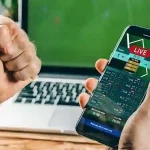If you need small amounts of money to grow your business, a micro loan may be right for you. Many microlenders offer more flexible criteria than traditional lenders. Some do not require a credit score or a business plan.
Some are non-profits and focus on specific types of businesses or social causes. Others offer peer-to-peer lending with fair interest rates.
Accion Opportunity Fund
Accion Opportunity Fund, or AOF, is the nation’s leading nonprofit business lender. It aims to create an inclusive, healthy financial system by connecting entrepreneurs with affordable capital, educational resources, and coaching. They also help them develop thriving businesses that contribute to local economies. AOF serves clients that are 90% women, people of color, and immigrants. Their clients’ businesses have a 96% survival rate, which is much higher than the national average of 50%.
The organization’s loans are available in many parts of the country, and its requirements for documentation are lenient. Applicants can apply on the website or contact a representative by phone to get started. They need to provide basic income and expense information, as well as bank statements or tax returns. In addition, they can use an Individual Tax Identification Number (ITIN) for small businesses that don’t have a federal tax ID number.
AOF’s most popular loan is its Progress Loan, which provides loans up to $100,000 for businesses that have been in operation for three months or more. The program is designed to help small-business owners who have been turned down by traditional lenders. Unlike other online lenders, AOF doesn’t require a minimum credit score for loan eligibility.
Earlier this year, AOF partnered with LegalZoom to award a $10,000 grant for Black business owners to help them recover from the economic impact of the coronavirus pandemic. The grant was announced at a ceremony at Coppin State University, a historically black college in Baltimore.
Grameen America
The Grameen America program is an example of a microfinance model that provides 소액대출 to low-income women to start small businesses. It is based on the original Grameen Bank program in Bangladesh designed by Nobel Peace Prize winner Muhammad Yunus. In addition to providing microloans, the program provides training and financial education to help women develop their business skills. It also helps them build peer networks. The program enables these women to achieve economic benefits beyond those they could achieve in wage-based employment.
To participate in the program, women must form a group with four other women and apply to receive financial training. Once approved, they are given a small microloan and begin saving in the program’s savings account. They then meet weekly with a group manager and other members to review loan repayments, continue their financial education, and to build their peer network.
In interviews, Grameen America borrowers report a variety of benefits of the program. For example, one borrower said that she used her first microloan to buy portable equipment so that she could sell Southern-inspired food at street fairs and festivals in New York City. This allowed her to expand her income and provide more for her family.
The evaluation of the Grameen America program is using a rigorous design, including a randomized controlled trial to examine its impact on a wide range of outcomes. The study’s primary goal is to identify the mechanisms that contribute to the program’s impacts on borrowers. This includes examining the role of social networks, credit scores, and savings in reducing material hardship for borrowers.
Kiva
Kiva is a path-breaking, fast-growing person-to-person microlending website. The site lets users lend money to individuals who have been posted by a field partner. After the borrower pays back the 예금계산기, the lender can withdraw their funds, with no interest attached. The loans are made by people just like you.
The founders of Kiva had to overcome a lot of skepticism to make the venture work. Many in the microfinance world thought that if MFIs were to scale, they needed access to commercial markets for their capital. But most MFIs were too small and lacked the track record to qualify for commercial-grade investments.
As the site grew, Flannery and Jackley found that they could crowdfund loans from a number of lenders who wanted to support entrepreneurs in developing countries. They named the site Kiva (which means “unity” in Swahili) because it encompassed the idea of connecting people across the globe.
To help lenders feel more comfortable with their investments, Kiva also vets and posts profiles of borrowers to provide more information on who they are, their business, and how the loan will be used. These profiles can include pictures of the borrowers, testimonials, and stories from other community members. Additionally, the borrowers are required to submit credit history to prove that they can repay their loans. The profiles give the lenders peace of mind that they are supporting a responsible and trustworthy borrower.
Women’s Initiative for Self Employment
Women’s Initiative for Self Employment provides high-potential low-income women with the business training, funding and ongoing support they need to start and grow their own businesses. Women who graduate from this program are able to improve the economic health of their families and communities, while breaking barriers to personal fulfillment.
Since 1988, Women’s Initiative has assisted high-potential, low-income women who dream of business ownership. Through an intensive 22 session program, women learn to start, or expand, their own businesses. Their average annual individual income increases from less than $13,000 before training to more than $25,000 one year after training. In addition, their ownership rate of homes and other assets doubles.
In the United States, the economic empowerment of women through entrepreneurship has become a critical policy priority. Women-owned small and medium enterprises (SMEs) are a growing market force, but they face substantial challenges in gaining access to credit. There is a roughly $300 billion gap in credit for women-owned SMEs, and current financing mechanisms are not able to address this need.
In order to help fill this gap, JPMorgan Chase is launching a new financing platform, called Women Entrepreneurs Finance Initiative (We-Fi). We-Fi is a multi-donor fund that will invest $150 million in women entrepreneurs and other women-owned businesses in developing countries across the globe. The funds will be used to provide access to capital, technical assistance, and networking opportunities.









